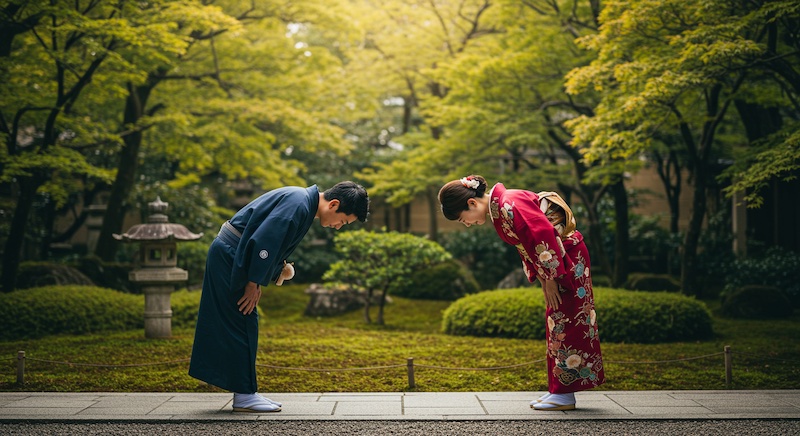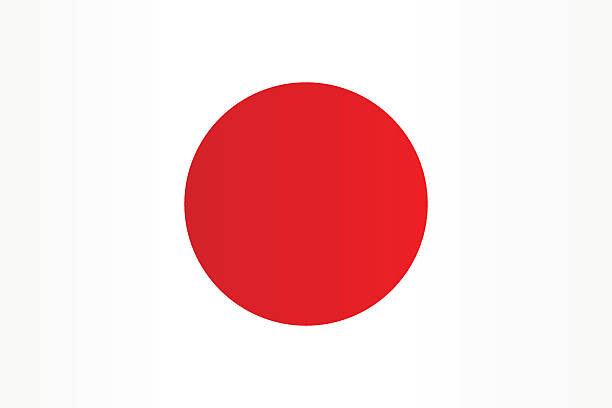Shohei Ohtani: A Phenomenon and the Japanese Spirit
Shohei Ohtani, a player for the Los Angeles Dodgers, has garnered global attention for his exceptional baseball talent.
However, his appeal extends beyond his unprecedented two-way abilities to the values he demonstrates through his character and actions.
This article analyzes the numerous ways Ohtani has been praised by the media and fans, explaining how these actions are deeply connected to Japanese moral education and spirituality.
Furthermore, it explores how his morality and spirit influence his performance as a baseball player.
By also examining examples from other successful Japanese MLB players like Yoshinobu Yamamoto and Yu Darvish, we will touch upon the shared spirit among Japanese athletes.
Table of Contents
Ohtani’s success has sparked interest that goes beyond mere sports news.
The fascination many people have with his character suggests that his behavior stems not only from personal qualities but also from the values he cultivated within Japanese society.
Understanding Ohtani’s words and deeds through the lens of Japanese cultural background can provide deeper insights into his principles and the reasons for his success.
Praised Actions of Shohei Ohtani and Japanese Moral Values
Humility and Politeness
In Japanese society, humility (kenkyosa) and politeness (reigi) are highly valued virtues.
These values are deeply ingrained through early education and social life.
Ohtani’s words and actions frequently reflect these Japanese moral concepts.
For instance, his comment at his marriage announcement press conference, “I don’t want to blabber about unnecessary things,” was praised by many Japanese fans as showing unpretentious honesty and a humble attitude about his private life.
His reluctance to excessively boast about his achievements or personal matters aligns with the Japanese emphasis on humility.
Furthermore, Ohtani is reportedly consistent in his interactions with the media, treating everyone with the same respect, regardless of their experience.
His courteous and equal treatment of both veteran reporters and newcomers embodies politeness.
This equitable attitude reflects the Japanese spirit of showing respect for others.
Additionally, an anecdote where Ohtani apologized after his batted ball bounced back towards the pitcher, who caught it, exemplifies the subtle Japanese etiquette.
This act of considering the opponent even during a good play demonstrates a uniquely Japanese form of humility that goes beyond mere sportsmanship.
These actions hint at the Japanese spirit of “enryo”, which involves refraining from self-assertion and valuing harmony with those around you.

Effort and Dedication
Japanese society strongly encourages effort (doryoku) and unwavering dedication (kenshin) towards achieving goals.
The word “ganbaru,” meaning to persevere, represents the highly valued attitude of facing difficulties and working persistently.
Ohtani’s approach to baseball perfectly embodies this spirit of effort and dedication.
Dodgers catcher Will Smith has mentioned that he can learn a lot from Ohtani’s practice habits.
His serious attitude towards preparing for games and his daily training serve as a model for his teammates.
Despite his natural talent, his continuous pursuit of improvement inspires those around him.
An article in Anaheim Sports praised Ohtani’s “awe-inspiring work ethic, resilience, and relentless dedication”.
His dominant performance throughout the season suggests an incredible amount of underlying effort.
The term “Yakyū Shōnen” (baseball boy) refers to individuals who are passionate about baseball and tirelessly strive to reach their full potential.
Ohtani himself embodies this “Yakyū Shōnen” spirit, constantly working to improve himself.
The existence of a mandala chart he created in high school and a journal where he recorded daily events demonstrate that he has focused on setting clear goals and thoroughly analyzing himself to enhance his self-management skills since a young age.
This meticulous preparation and accumulation of effort clearly support his exceptional performance.
The Japanese spirit of continuous self-improvement (kaizen) is strongly evident in Ohtani’s actions.
Teamwork and Consideration for Others
Japanese culture tends to emphasize the group over the individual, valuing teamwork (chiimuwaku) and consideration for others (tanin e no hairyo).
Cooperation and mutual respect are expected in all aspects of social life.
Ohtani’s words and actions reflect his awareness of being part of a team and his thoughtful consideration for those around him.
Ohtani’s statement that he would support Yoshinobu Yamamoto regardless of which team he signed with shows a sense of solidarity with a fellow Japanese player and a caring attitude.
Such consideration even before becoming teammates speaks volumes about his character.
Kiké Hernández has mentioned that Ohtani is funnier than expected and enjoys joking around with his teammates.
This suggests that he actively tries to integrate into the team and build good relationships.
A bright and positive attitude is crucial for improving team morale and fostering cooperation.
Furthermore, his actions like giving autographed balls to fans and interacting with a sick child demonstrate his gratitude towards fans and his warmhearted consideration for others.
This thoughtful kindness aligns with the Japanese spirit of “omoiyari,” which means empathy and consideration.
Ohtani’s decision to defer a significant portion of his high salary in his contract with the Dodgers to help the team strengthen its roster is a clear indication of his strong sense of teamwork, prioritizing the overall benefit of the team over his own immediate financial gain.
Mental Strength and Composure
Unwavering mental strength (seishinteki na tsuyosa) and maintaining a calm composure (heijoshin) even in difficult situations are important elements rooted in the Japanese spirit of Bushido (the way of the warrior).
Self-discipline and an attitude unaffected by emotions are highly valued in many situations.
Ohtani’s play and demeanor exude extraordinary mental fortitude and calmness.
Teammates Michael Petersen and Tyler Glasnow have praised Ohtani’s mental strength, noting his ability to maintain composure in any situation.
Glasnow specifically analyzed that Ohtani’s consistent relaxation and stability contribute to his excellent play.
Bob Nightengale of USA Today highlighted Ohtani’s mental toughness in continuing to perform well despite off-field issues.
His ability to maintain his performance even in adversity is highly regarded by many experts.
Furthermore, the anecdote that he emphasized mental imagery training since high school and maintained high concentration during games by entering an “image space” illustrates his strong mental control.
His calm and precise responses to difficult questions in interviews also demonstrate his mental maturity.
Gratitude and Social Contribution
In Japanese culture, the feeling of gratitude for received kindness (kansha no nen) is highly valued.
In recent years, there has also been an increasing awareness of contributing to society as a member of the community (shakai koken).
Ohtani’s actions strongly reflect a constant sense of gratitude and a desire to contribute to society.
His donation of 60,000 baseball gloves to approximately 20,000 elementary schools across Japan likely stems from reflecting on his own experiences when he started playing baseball and a strong desire to contribute to the development of the next generation.
This act shows his gratitude towards those who supported him and society, as well as a warm concern for the children who will lead the future of baseball.
His donation to support the recovery efforts after a large-scale wildfire near Los Angeles, his current base of operations, is another example of his strong sense of social contribution.
His willingness to contribute to the local community has resonated with many people.
The episode where he gifted the rights to his bobblehead doll to fans is also a heartwarming act expressing gratitude towards his supporters.
These actions are evidence that he consistently appreciates the people around him who have contributed to his success.
The Japanese concept of “on” (obligation or indebtedness) is likely at the root of his actions.
Commonalities with Other Japanese Major Leaguers
Yoshinobu Yamamoto
Yoshinobu Yamamoto, also a member of the Dodgers, exhibits many traits in his words and actions that align with Japanese moral values.
Teammates have praised his constant composure and high level of control, which reflects the Japanese spirit of maintaining composure (heijoshin) under pressure.
Furthermore, his active participation in English lessons demonstrates his effort (doryoku) to adapt to a new environment.
His willingness to communicate in a different culture shows respect for others and a desire for personal growth.
Additionally, the anecdote of him personally encouraging a teammate after a fielding error shows his consideration (omoiyari) for his teammates.
His approach of encouraging rather than blaming a teammate for a mistake aligns with the Japanese emphasis on the group.
Ohtani’s praise of Yamamoto as having “first-class behavior” suggests that both players share a common understanding of professionalism rooted in Japanese values.
Yu Darvish
Yu Darvish, who has been active in MLB for many years, also frequently demonstrates a strong sense of Japanese spirit in his words and actions.
In particular, his tolerant response to Yuli Gurriel’s racist gesture was praised worldwide as an example of his exceptional sportsmanship and his spirit of patience (nintai) in maintaining composure during difficult situations.
His immediate concern and checking on the umpire after his pitch hit him during a game shows his politeness (reigi) and consideration (omoiyari) for others. Furthermore, his willingness to generously offer advice to younger Japanese pitchers like Roki Sasaki demonstrates his sense of responsibility as a senior figure in Japanese society to nurture the next generation.
Additionally, the anecdote of him encouraging his wife, Seiko, to actively use prepared meals to reduce her burden reveals his thoughtful consideration, or omoiyari, within his family.
Darvish’s long career in MLB and his experience overcoming numerous challenges suggest that his actions are not temporary but are based on deeply ingrained values.
The Impact of Japanese Moral Values on Their Performance
The Japanese moral values commonly seen in Ohtani, Yamamoto, and Darvish likely have a positive, albeit indirect, impact on their performance as baseball players.
The spirit of effort and dedication supports their rigorous daily training, leading to improved skills and ultimately contributing to success in games.
Will Smith’s comment about learning from Ohtani’s practice habits and Yamamoto’s dedication to learning English demonstrate a strong desire for self-improvement, which undoubtedly fuels their performance.
Mental strength and composure influence their concentration in high-pressure situations and their ability to bounce back quickly after mistakes.
Ohtani’s consistently calm demeanor and Yamamoto’s unwavering presence in tense moments illustrate their mental fortitude.
Teamwork and consideration for others contribute to good communication and trust among teammates, ultimately improving the overall team performance.
Ohtani’s support for Yamamoto and Darvish’s mentorship of younger players are expressions of their sense of responsibility as team members and their desire to contribute to the group.
Humility and politeness can make it easier to gain the trust of coaches and teammates, potentially increasing learning opportunities.
Ohtani’s equal treatment of everyone is an important factor in building smooth relationships with those around him.
Gratitude can create a desire to repay the support of fans and those who have helped them, which can lead to further effort and better performance.
Ohtani’s appreciation for his fans may be a contributing factor to his motivation.
These values interact with each other, supporting their sustained success throughout their careers. The spirit of the “Yakyū Shōnen” truly propels their growth and success in the form of passion, effort, and respect.
Shohei Ohtani and the Pride of the Japanese People
Shohei Ohtani’s numerous praised actions are deeply connected to the moral values cherished in Japanese society, including humility, effort, dedication, teamwork, consideration for others, mental strength, and gratitude.
These values are also commonly observed in other successful Japanese Major League Baseball players like Yoshinobu Yamamoto and Yu Darvish.
In addition to his exceptional talent, Ohtani’s noble character, demonstrated through his actions, serves as a symbol of the Japanese spirit to the world.
His humble yet constantly striving attitude, his actions that prioritize the team, and his mental strength to overcome difficulties inspire and encourage many people.
His success is not only a great achievement in the world of baseball but also embodies Japanese culture and values, bringing pride to fans both domestically and internationally.
Shohei Ohtani is truly the pride of the Japanese people.


Leave a Reply